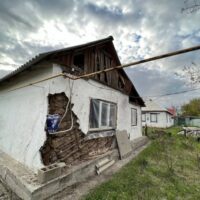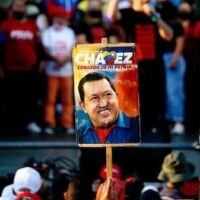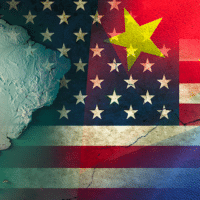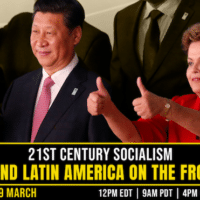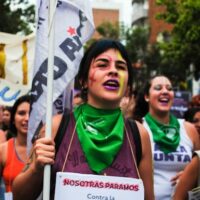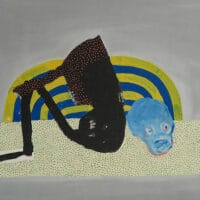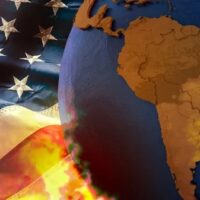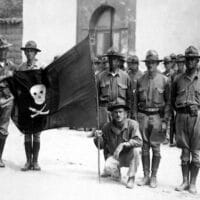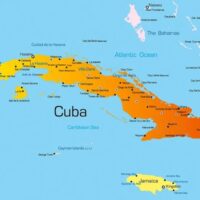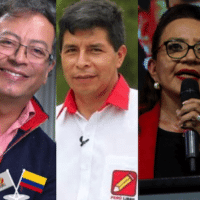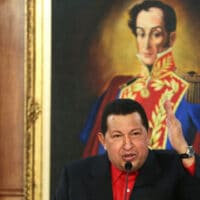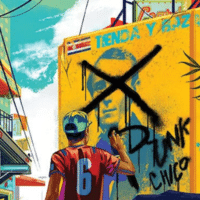-
“Stay safe”: the whole world is in harms’ way
This is not a dispatch, editorial, or an article, but a brief note.
-
Hugo Chávez’s ideas are being recycled by Latin America’s ‘new progressivism’
A spectre is haunting Latin America: the ideas of Hugo Chávez. A “new progressivism” is adopting them as their banner and claiming them as their own, thus invisibilizing Venezuela’s role in attempts at promoting regional integration and sovereignty over the last two decades.
-
Carrot and stick: U.S. pressure and extortion to break Latin America’s ties with Russia and China
In the last two weeks, the State Department has deployed an ambitious blackmailing persuasion program on countries located in the so-called “Western Hemisphere”, with the aim of limiting their trade and cooperation ties with Moscow and Beijing.
-
Lula wants a Latin American currency
Former Brazilian President Luiz Inácio Lula da Silva, who’s once again in the running for the presidency, says that “God willing” he hopes to see the creation of a Latin American currency capable of overcoming the region’s dependence on the dollar.
-
China and Latin America: Dilma speaks
Friends of Socialist China, located in London, is a platform dedicated to supporting the People’s Republic of China and promoting understanding of Chinese socialism.
-
Crisis & Critique: Venezuela and the New Latin American Left
With leftist leaders winning back power in Latin America, how will they handle the “Venezuela issue”? Ociel López breaks it down.
-
The gains of Nicaraguan women during the second Sandinista Government
Women in the Third World (and increasingly in the imperial First World) face problems of violence at home and in public, problems of food and water for the family, of proper shelter, and lack of health care for the family, and their own lack of access to education and thus work opportunities.
-
Dossier no. 49: A map of Latin America’s present: An interview with Héctor Béjar
Four emblematic coups have now been substantially reversed: Chile (1973), Peru (1992), Honduras (2009), and Bolivia (2019). Each of these coups was driven by political forces of the far right backed by the military and by the United States government.
-
Make noise about the silent crisis of global illiteracy: The Fifth Newsletter (2022)
In October 2021, the United Nations Economic Commission for Latin America and the Caribbean (ECLAC) held a seminar on the pandemic and education systems.
-
NATO’s tentacles from Europe to Latin America
International analysts are often, and understandably, asked whether there will be a change in U.S. foreign policy depending on whether a Republican or Democratic president rules the White House.
-
Latin America will continue to distance itself from the United States
At a time when Washington and its Western allies are attempting to maintain a resolutely unilateralist approach, the Latin American countries that the United States has too long regarded as its backyard continue to deepen their strategic ties with the main pro-multipolar forces.
-
Two exemplary Twentieth-Century Socialist Latin American lives: José Carlos Mariátegui and Orlando Letelier
The two books we will analyze in this essay, Bread and Beauty: The Cultural Politics of José Carlos Mariátegui by Juan E. De Castro, and Alan McPherson’s Ghosts of Sheridan Circle: How a Washington Assassination Brought Pinochet’s Terror State to Justice, are very different in subject matter, discipline, and style.
-
21st Century U.S. coups and attempted coups in Latin America
During the 21st century, the U.S., working with corporate elites, traditional oligarchies, military, and corporate media, has continually attempted coups against Latin American governments which place the needs of their people over U.S. corporate interests. U.S. organized coups in Latin American countries is hardly a 20th century phenomenon.
-
Unlocking U.S. sanctions: China signs construction & energy deals with Cuba
Beijing is slowly unpicking Washington’s foreign policy, sanction by sanction, country by country.
-
Lack of Left-wing culture, weakness of progressivism in Latin America
One of the great weaknesses of Latin American progressivism and something that explains its partial defeats is the lack of a leftist, alternative and accessible popular culture, promoting new ways of organizing daily life, affirms Álvaro García Linera.
-
Chávez the Radical XXVI: ‘What are Privatizations?’
The Bolivarian Revolution represented a break from neoliberal governments. Is the tide turning? Tatuy TV examine that in this episode of “Chávez the Radical.”
-
China plays a crucial role supporting progress and sovereignty in Latin America
In the last two decades, economic links between Latin America and the People’s Republic of China have been expanding at a dizzying rate.
-
Dossier No. 47: New clothes, old threads: the dangerous right-wing offensive in Latin America
The Western world lives in discontent. Progressive models have failed to maintain the levels of politicisation, mystique, capacity to question, transformative purpose, and possibilities of concrete changes for the masses.
-
Latin America: modest advice for a confused Left
The Foreign Agents Registration Act (FARA) is a U.S. law passed in 1938 that requires individuals representing the interests of foreign governments, in “political or quasi-political capacity,” to disclose their relationship to said foreign government and provide detailed information on its finances and activities to the U.S. authorities.
-
Pandora files link 14 latam presidents to offshore activities
Chile’s President Sebastian Piñera, Ecuador’s President Guillermo Lasso, and Dominican Republic’s President Luis Abinader are the active top politician implicated in the leak.

